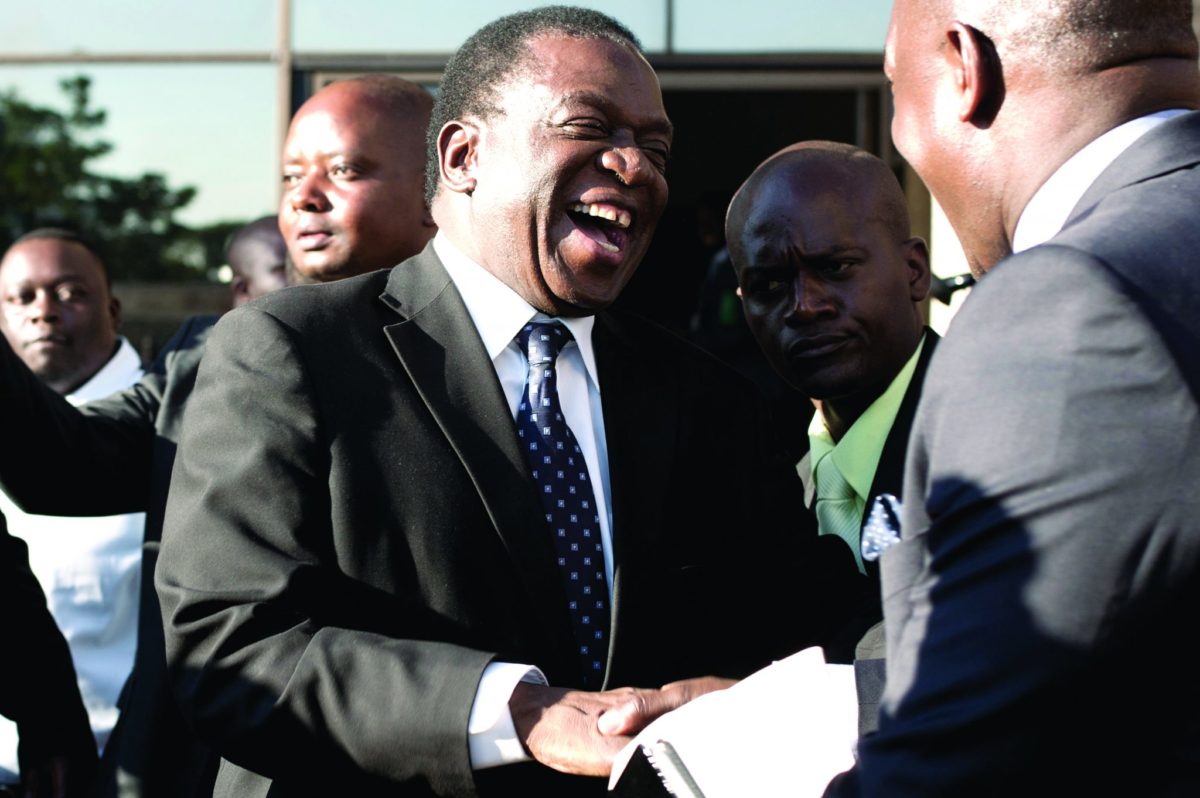There are times in this wonderful, wearying, job when you have to pinch yourself to check whether you are dreaming. That was how I felt on a sweaty and violent summer afternoon in Zimbabwe, in 1997, when people fought with police, threw up barricades across the streets of Harare, smashed shops and set fire to anything they could get their hands on. Not too dissimilar from the protests rocking the capital in 2016; different times, same complaints.
I was standing in the middle of it all doing my so called piece-to-camera for the television camera – without which the viewers will never believe you were actually there. In the corner of my eye I noticed a tall man with a thick black beard; he looked at me, raised his right fist to his mouth in the manner of a nervous cough and stood, almost to attention, patiently as if he were waiting to see the doctor. This man, I learned moments later, was Joseph Chinotimba, one of the leaders of the country’s war veterans and latterly a Member of Parliament. Now, the war veterans were those who carried guns and threw grenades in the struggle to create a majority-ruled Zimbabwe.
“Mr Bishop, the war veterans are holding a protest at State House on Tuesday, would you like to come?” as if it were an invitation for tea and cucumber sandwiches. I pinched myself twice.
There was no china cups and gentle chat on that Tuesday. To say the least, the war veterans were a tough and fearsome crowd that could turn medicine sick. Many emerged from the bush stronger and fitter; I met scores of them in the bars of Harare, in government and business, who enjoyed the fruits of their hard-won freedom. Many others were scarred for life by the war; others scarred, more deeply, in the soul through years of callous killing and random dying.
So it was a rough crowd that laid siege to State House demanding to speak to President Robert Mugabe. There were about two dozen former guerrilla fighters gathered; you could tell most didn’t have two cents to rub together. The angry chant of liberation songs were now directed at those they had fought to put in power. President Mugabe wasn’t in; he was away on a foreign trip so the war veterans demanded to see the next most senior leader of Zanu-PF.
Loading...
Out of the gate came the portly figure of the then Minister of Justice Emmerson Mnangagwa resplendent in an expensive grey suit, looking confident like he was walking up to the podium at a political rally.
“Pamberi ne Zanu (forward with Zanu),” says Mnangagwa, raising his right clenched fist above his head, with his chin up, waiting for the loyal response. Back came vitriol.
“Ah, voetsek iwe (go away, you),” was one of the more polite responses.
Mnangagwa’s face was a picture; a mixture of shock and disbelief that the party faithful could show such anger and disdain to their beloved leaders. It was as if he had heard a dog reciting poetry. He shuffled back into State House without a word.
It didn’t take long for the penny to drop, literally. Days later the news filtered out of State House that 50,000 war veterans were to be given compensation payments of about $4,000 each. The payments contributed to the famous currency plunge leading to the death of the Zimbabwean dollar; many of the taxpayers, who footed the bill, were bitter.
I met a former teacher at a gathering days later who told me a story how one of the guerrilla fighters waylaid him on the way home from a country school in the 1970s. The fighter asked him to buy 30 pairs of training shoes for his platoon in the bush. The teacher, who supported the struggle, spent every penny of his monthly pay buying the shoes.
“After I gave him the shoes he took my watch too!” said the outraged former pedagogue.
“I was fed up, I had spent every penny of my pay and now they want four thousand dollars as well.”
Overnight the war veterans became the faithful, snarling, dogs of Zanu-PF. It was they who led the bloody takeover of the farms of Zimbabwe and acted as brutal enforcers against anyone who stepped out of line.
The word from Harare, in 2016, is that these hardened war veterans have now turned against the ruling party again. Post-liberation politics can often make for uneasy, if not dangerous, bedfellows.
Loading...
